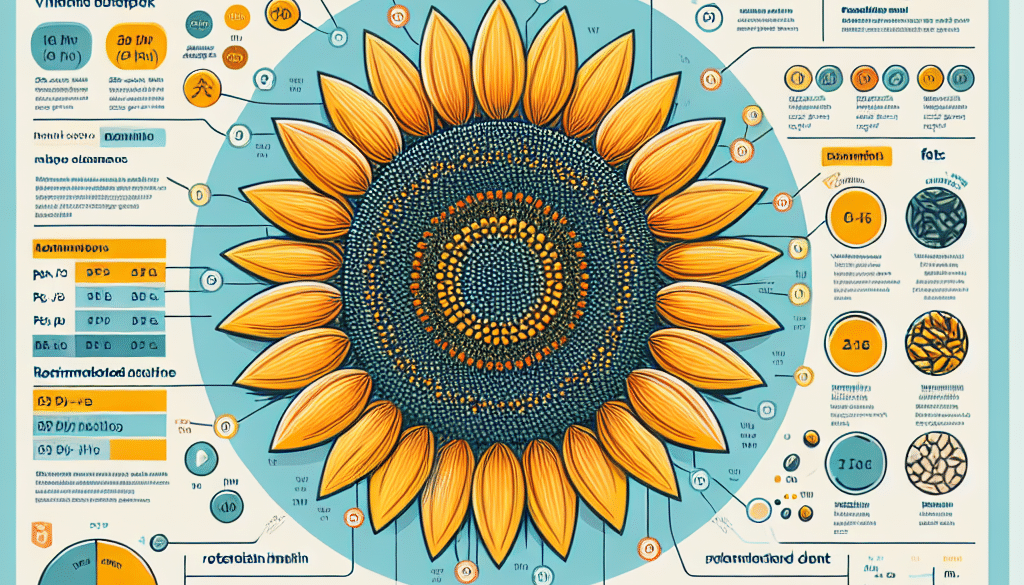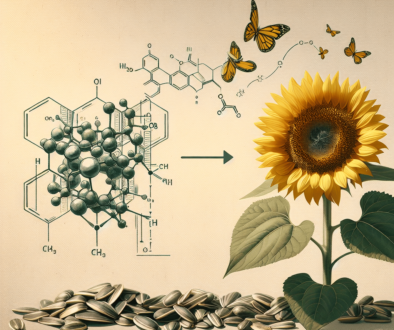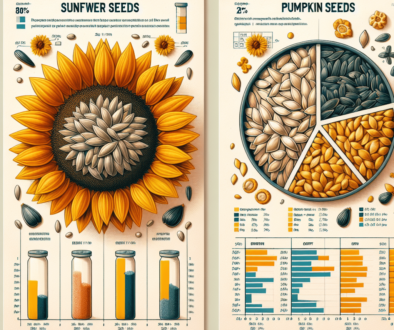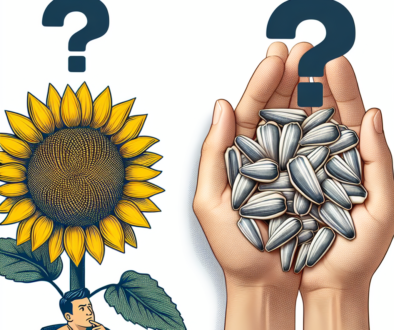Sunflower Seeds Protein: Nutritional Breakdown
-
Table of Contents
- Sunflower Seeds Protein: A Comprehensive Nutritional Breakdown
- Understanding Sunflower Seed Protein
- Nutritional Profile of Sunflower Seeds
- Protein Quality and Amino Acid Profile
- Health Benefits of Sunflower Seed Protein
- Comparing Sunflower Seed Protein to Other Sources
- Case Studies and Research
- How to Incorporate Sunflower Seed Protein into Your Diet
- Conclusion: The Power of Sunflower Seed Protein
- Discover ETprotein’s Sunflower Seed Protein Products
Sunflower Seeds Protein: A Comprehensive Nutritional Breakdown
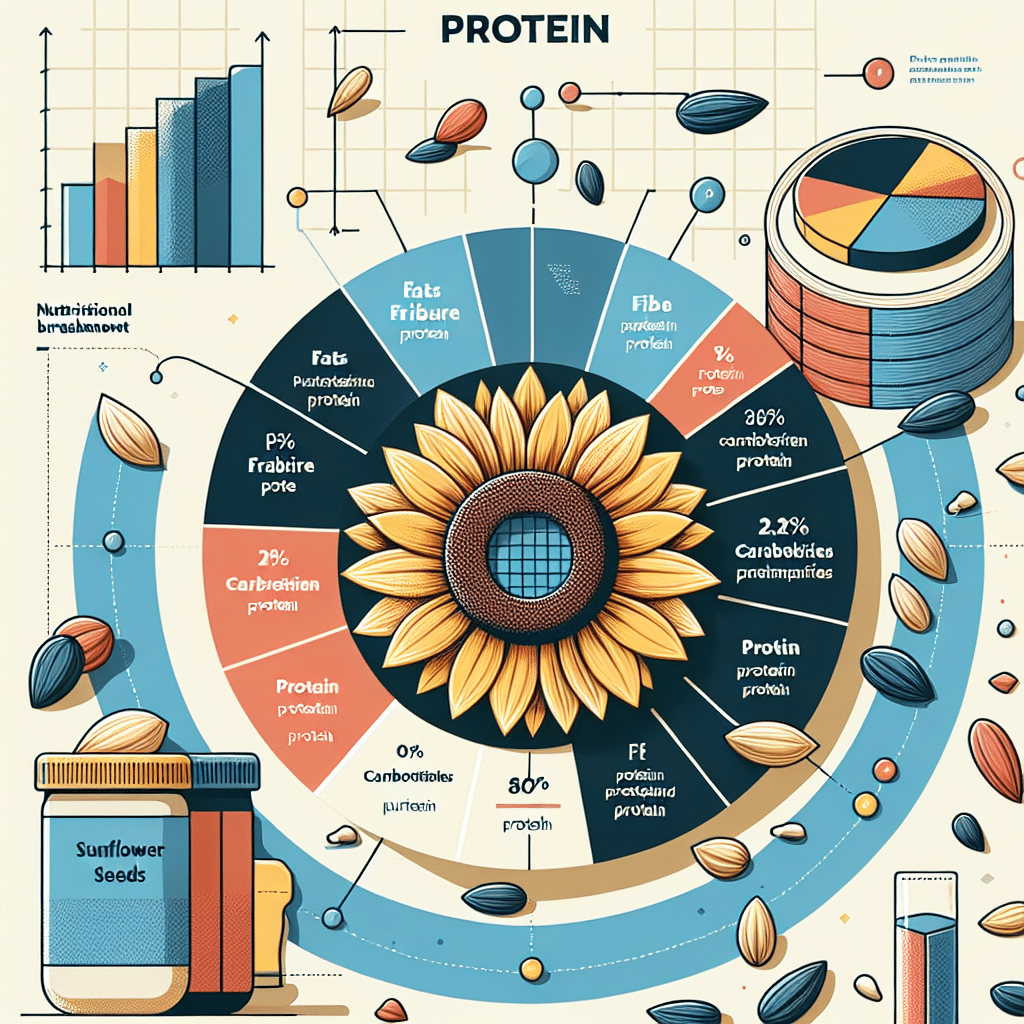
Sunflower seeds, the fruits of the beautiful Helianthus annuus plant, are not only a popular snack but also a powerhouse of nutrition. Among their many health benefits, sunflower seeds are an excellent source of plant-based protein, making them a valuable addition to any diet, especially for those seeking alternative protein sources. In this article, we will delve into the nutritional profile of sunflower seed protein, exploring its benefits, how it compares to other protein sources, and why it should be a part of your dietary regimen.
Understanding Sunflower Seed Protein
Sunflower seeds are more than just a crunchy treat; they are a rich source of high-quality protein. Protein is a crucial macronutrient necessary for building and repairing tissues, making enzymes and hormones, and supporting overall health. Plant-based proteins like those found in sunflower seeds are gaining popularity due to their sustainability and health benefits.
Nutritional Profile of Sunflower Seeds
Before we dive into the specifics of sunflower seed protein, let’s look at the overall nutritional content of these seeds:
- Protein: Sunflower seeds are composed of about 20% protein, which is quite high for a plant-based source.
- Fats: They are rich in healthy unsaturated fats, particularly linoleic acid (an omega-6 fatty acid) and oleic acid.
- Fiber: Sunflower seeds provide dietary fiber, which aids in digestion and promotes satiety.
- Vitamins: They are an excellent source of vitamin E, B vitamins (especially thiamin and folate), and niacin.
- Minerals: Sunflower seeds contain significant amounts of magnesium, phosphorus, potassium, zinc, iron, and selenium.
- Antioxidants: These seeds are packed with antioxidants, which help combat oxidative stress and inflammation.
Protein Quality and Amino Acid Profile
The quality of protein is determined by its amino acid profile and digestibility. Sunflower seeds contain all the essential amino acids, making them a complete protein source. However, like most plant proteins, sunflower seed protein is slightly lower in certain essential amino acids, such as lysine, when compared to animal proteins.
Despite this, the protein in sunflower seeds is highly digestible and can be effectively utilized by the body. The presence of fiber and healthy fats in sunflower seeds also contributes to a slower digestion process, which can be beneficial for sustained energy and satiety.
Health Benefits of Sunflower Seed Protein
Incorporating sunflower seed protein into your diet can offer numerous health benefits:
- Weight Management: The protein and fiber in sunflower seeds can help you feel full longer, reducing overall calorie intake.
- Muscle Maintenance: Adequate protein intake is essential for preserving muscle mass, particularly as we age or engage in regular exercise.
- Heart Health: The unsaturated fats, fiber, and antioxidants in sunflower seeds contribute to a healthy cardiovascular system.
- Reduced Inflammation: Antioxidants like vitamin E and other compounds in sunflower seeds can help reduce inflammation in the body.
- Improved Digestion: The fiber content in sunflower seeds promotes regular bowel movements and a healthy digestive tract.
Comparing Sunflower Seed Protein to Other Sources
When compared to other plant-based proteins, sunflower seed protein holds its own. For instance, it has a higher protein content than flaxseeds and pumpkin seeds but is slightly lower than hemp seeds. Compared to animal-based proteins, sunflower seed protein has the advantage of being lower in saturated fats and cholesterol-free.
It’s also important to note that sunflower seeds can be a part of a balanced diet that includes various protein sources, both plant and animal-based, to ensure a complete amino acid profile and nutritional adequacy.
Case Studies and Research
Several studies have highlighted the benefits of incorporating plant-based proteins like sunflower seed protein into the diet. For example, research has shown that diets rich in plant proteins can lower the risk of cardiovascular diseases, obesity, and type 2 diabetes. Additionally, plant-based diets are associated with a lower environmental impact compared to diets high in animal protein.
How to Incorporate Sunflower Seed Protein into Your Diet
There are many ways to enjoy sunflower seed protein:
- Add sunflower seeds to salads, yogurts, or oatmeal for a protein boost.
- Use sunflower seed butter as a spread on toast or in smoothies.
- Incorporate sunflower seed flour into baking recipes for added protein.
- Snack on roasted sunflower seeds for a satisfying, protein-rich treat.
Conclusion: The Power of Sunflower Seed Protein
Sunflower seed protein is a nutritious and versatile plant-based protein source that offers a wealth of health benefits. With its high protein content, beneficial fats, fiber, vitamins, and minerals, sunflower seeds are an excellent addition to any diet. Whether you’re looking to manage your weight, support muscle health, or simply enjoy a delicious and healthy snack, sunflower seeds are a choice worth considering.
Discover ETprotein’s Sunflower Seed Protein Products
If you’re interested in incorporating high-quality sunflower seed protein into your diet, ETprotein offers a range of products that cater to your needs. Their sunflower seed protein is characterized by a neutral taste, non-GMO, and allergen-free attributes, making it an ideal choice for various applications.
ETprotein’s commitment to quality and sustainability ensures that you’re getting the best plant-based protein products on the market. Whether you’re a manufacturer, trader, or simply looking for a reliable source of vegan protein, ETprotein has you covered.
About ETprotein:
ETprotein, a reputable protein Chinese factory manufacturer and supplier, is renowned for producing, stocking, exporting, and delivering the highest quality organic bulk vegan protein and plant proteins. They include Organic rice protein, clear rice protein, pea protein, clear pea protein, pumpkin seed protein, sunflower seed protein, mung bean protein, etc. Their offerings, characterized by a neutral taste, non-GMO, allergen-free attributes, cater to a diverse range of industries. They serve nutraceutical, pharmaceutical, cosmeceutical, veterinary, as well as food and beverage finished product distributors, traders, and manufacturers across Europe, USA, Canada, Australia, Thailand, Japan, Korea, Brazil, and Chile, among others.
ETprotein specialization includes exporting and delivering tailor-made protein powder and finished nutritional supplements. Their extensive product range covers sectors like Food and Beverage, Sports Nutrition, Weight Management, Dietary Supplements, Health and Wellness Products, and Infant Formula, ensuring comprehensive solutions to meet all your protein needs.
As a trusted company by leading global food and beverage brands and Fortune 500 companies, ETprotein reinforces China’s reputation in the global arena. For more information or to sample their products, please contact them and email sales(at)ETprotein.com today.

